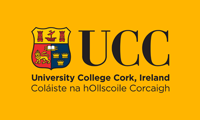News
APC research discovers novel role for microbial metabolism in COVID-19 severity and long COVID

New research shows that people with lower levels of tryptophan production and tryptophan metabolism may suffer increased risk of severe and chronic outcomes from COVID 19, according to new research published in Gut Microbes from APC Microbiome Ireland, a Research Ireland centre based at University College Cork.
PAPER HIGHLIGHTS
- Bacterial metabolism of tryptophan in the gut is shown to influence immune responses to SARS-CoV-2 infection
- People with poor immune response to infection have lower levels of tryptophan and its bacterial metabolites
- Supplementation with bacterial tryptophan metabolites may protect against the damaging effects of COVID-19 and long COVID
- This is further evidence that the relationship between nutrition and microbes has a profound effect on immune health.
Our gut microbiome, an ecosystem of microbes that live in our digestive tract, plays an important role in human health. Tryptophan is an essential amino acid, meaning that the human body cannot produce tryptophan and must obtain it from other sources. The study published in Gut Microbes is the first to comprehensively explore the links between microbial metabolism of tryptophan in the gut, with systemic immune responses to virus infection. It revealed significant differences in the capacity to generate tryptophan and its derivatives in patients with severe SARS-CoV-2 infection. Circulating levels of these metabolites also correlated with severity of infection and remained altered in some patients with long COVID. Using laboratory models, the anti-viral responses of human immune cells were significantly altered by these bacterial-derived metabolites.
The findings highlight the importance of gut microbes and microbial metabolism to human immune health. Microbial immune regulatory metabolites are expected and evolutionarily hardwired into immune system decision making processes. When these metabolites are missing, the immune system will become hyper-responsive and will not respond correctly to infections. This new study represents a novel strategy for targeted approaches to prevent inflammatory or damaging immune responses to infection and promote healing and resolution of inflammation following clearance of the virus.
Professor Liam O’Mahony, Principal Investigator at APC and Professor of Immunology, at UCC, who is senior author of the study, commented on the research’s implications: “From our previous studies, we hypothesised that microbial production of tryptophan and its downstream metabolites might restrain the devastating overproduction of inflammatory mediators, which leads to multiorgan failure during SARS-CoV-2 infection or risk of long COVID. Our new data suggests that screening people for lower-level microbiome capacity for tryptophan metabolism may help identify at risk individuals, while supplementing with tryptophan metabolizing probiotics may benefit those with low levels of these microbes.”
Dysrupted Microbial Tryptophan Metabolism Associates with SARS-CoV-2 Acute Inflammatory Responses and Long COVID’ was carried out in collaboration with University College Cork, Cork University Hospital and Cantonal Hospital St. Gallen. The paper is available to read on Online at Gut Microbes: Full article: Dysrupted microbial tryptophan metabolism associates with SARS-CoV-2 acute inflammatory responses and long COVID
This study was supported by funding from Research Ireland Frontiers for the Future


